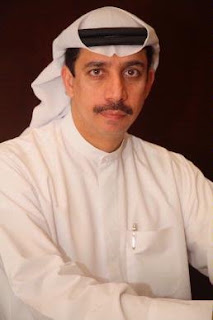By Tamer BazzariIn
In 2002, as I was working as the Senior Advisor to the Dubai Financial Market (DFM), the coffee boy came into my office with a big smile on his face and a plate of sweets. I asked him what the occasion was; thinking one of my colleagues got married or had a new born. He said: sir, you didn’t hear the good news? we had record trading today...the DFM’s trading value had hit a new high of AED 10 million for the day !These days, only three years later, some investors refer to days where DFM trading value is below AED 1 billion as “a slow trading day”.The UAE market was the best performing market in the world for the first half of 2005, more that doubling in 6 months, while the DFM was the best performing stock market in the region in 2004.The UAE stock market is driven by liquidity and high oil prices. Despite record earnings for many UAE public companies, the pace of increase in the stock market is just too fast. Valuations in the UAE market reached worrying levels as of the end of June 2005 but have since gave up some of the gains. The price to earnings ratio based on 2004 results reached 38 at the end of July 2005. Despite the good Q1 and Q2 2005 earnings, the forward P/E ratio continues to be high at 25 based on expected 2005 earnings. The price to book value of the UAE market is an alarming 7 times. Another worrying ratio is the market capitalization to GDP, which, at normal levels, should be around the 50% level. Based on 2004 UAE GDP, this ratio reached 185% at the end of July 2005. Many argue that this is a different era, earnings are solid, growth is sustainable and oil prices will remain high. Many argued during the tech boom that the conventional ways of valuing companies are no longer valid and that growth companies need to be valued in a new fashion. But fundamentals are fundamentals, and investors in Arab markets need to, more than ever, seek to invest based on value, not fad. Investors should look not just at earnings, but at quality and sustainability of earnings. Operating profits are much more important than profits generated from the non-sustainable local stock market boom. What worries me in the UAE (in addition to valuations) is liquidity. IPO’s coming to the market take significant amounts of liquidity out of the market; however, the part that is most worrying is capital increases. As existing companies look to benefit from the market boom by increasing their capital through rights issues, the amount of liquidity taken out of the market, which includes significant share premiums in most instances, is where the real problem lies as tens of billions of liquidity gets pulled out of the market. The market decline could be lead by investors liquidating their holdings in listed companies and investing in rights issues and IPO’s forcing the market to decline.During the Arab Economic Forum in Beirut in June, there was a panel to discuss Arab capital markets and debate whether it was a bubble or boom. With half a dozen panelists, the views were very different. The fund managers of public equities argued that market performance is sustainable, while private equity fund managers argued that a correction is around the corner. Each one urging investors to shift to the asset class that they manage. Several reports from leading Asian and European banks have also recently come out indicating that the bubble is about to burst. As they do not manage assets in the region, and as they benefit from investors cashing out from the region and going into asset classes that they do manage, their opinions may also be biased. Although certain regional markets look expensive, including Saudi Arabia, UAE and Qatar, other still look reasonably valued, including Kuwait, Oman and Egypt. A pan Arab approach to stock market investing rather than focusing on an expensive single market would be a good way to benefit from the regional market boom while diversifying ones holdings, investing in value companies and reducing risk. In addition, working with regional professional investment managers who understand the markets and can allocate between companies, sectors and countries is advisable.












